The last shift at Ebbw Vale
- Published
For more than 200 years the town of Ebbw Vale, situated in an isolated valley in south Wales, owed its existence to the heavy industries of coal and iron that emerged there in the late 18th Century. But by the late 1990s a collapse of the international steel market led to eventual closure in 2002.
Photographer Joseph Murphy was on hand to document the last men to work at the plant, and, to mark the 15th anniversary of its closure, has spent the past year asking them to recall their time at the steelworks.
The resulting pictures can be seen at the National Waterfront Museum in Swansea, external until early April.

Alan John Harris
Electrical fitter and electrician, 34 years at the works
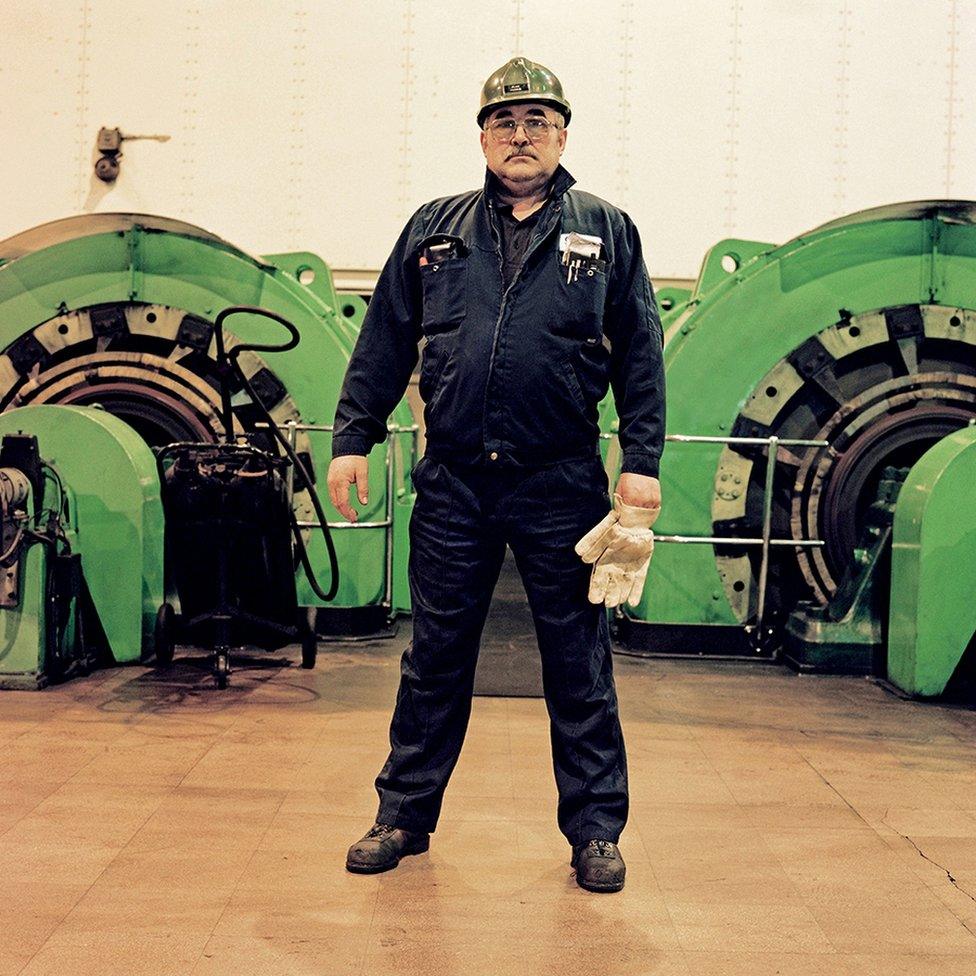
I suppose that it took a long time for it to sink in that it was actually going to close.
I loved every minute of every day at that plant.
I never imagined that the steelworks would ever close.
My thoughts were:
What were the people who worked there going to do?
What were my mates going to do?
What was I going to do?

Allan Watkins
Pickler team leader, 29 years at the works
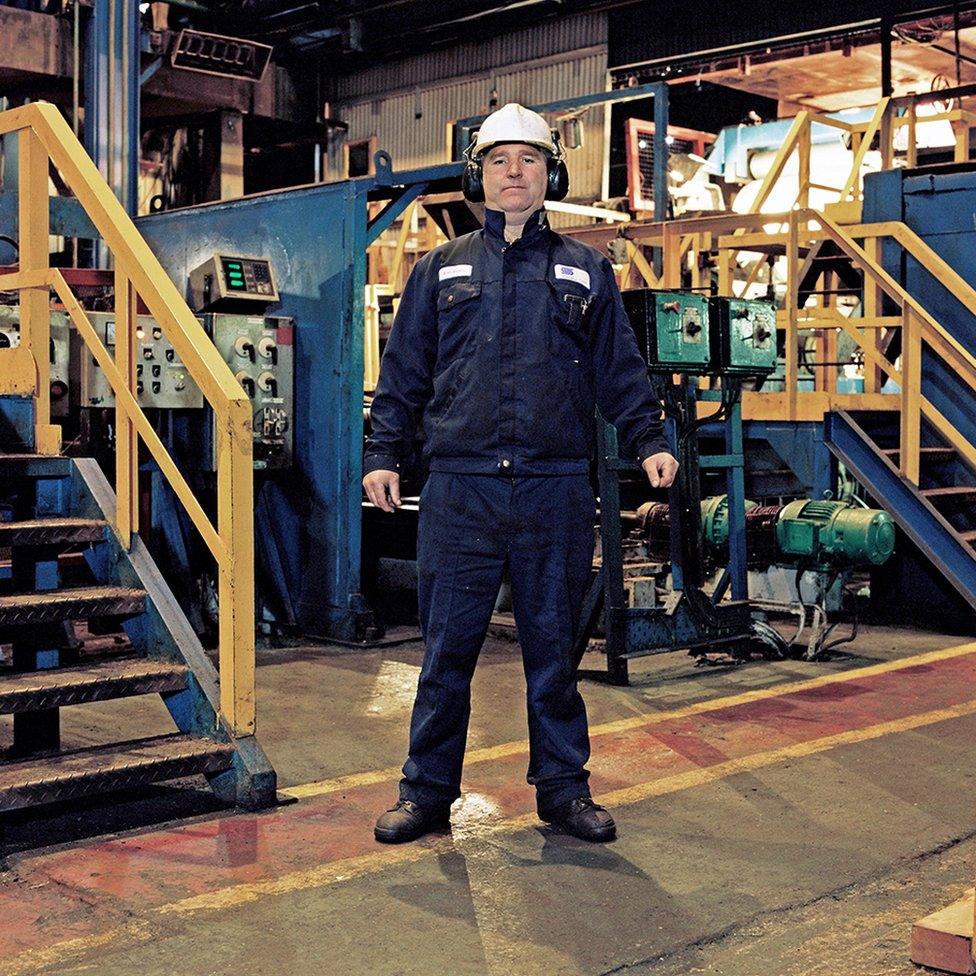
The last shift I worked was the 06:00-14:00 shift on the day of closure itself.
I walked the complete area of the pickle line from the hot mill warehouse to the exit warehouse - just taking in as many memories as possible on the way.
I was gutted and hurt, but I knew deep down that we all had to pick ourselves up and move on.

Alun Hodson
Engineer on pickle line, 12 years at the works
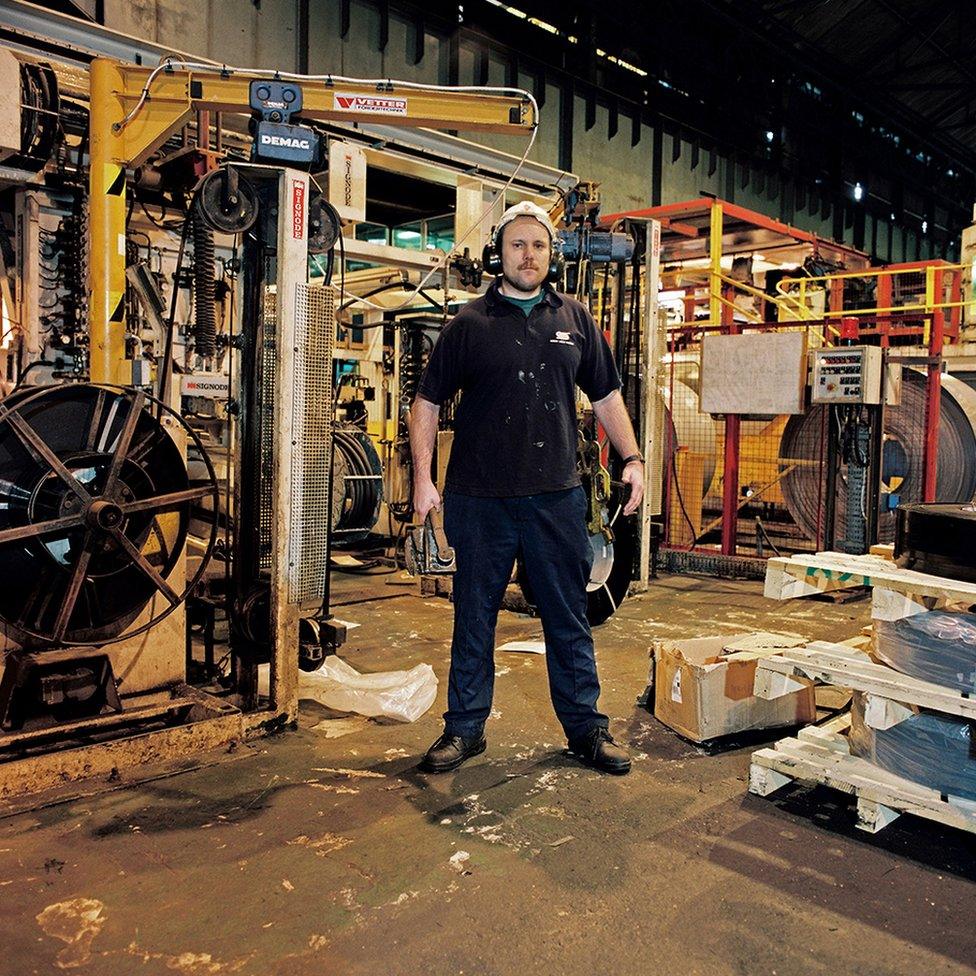
I worked across all the shifts and encountered some unbelievable characters.
There was Arthur Jones, who would eat an onion like an apple, and his operator, Alan Holvey, who was completely deaf and dumb but who managed to get his message over sort of telepathically.
You had [another of my co-workers], who was so mean that it was said that he knocked the gas off to turn the bacon over and that he still had every free-issue donkey jacket and towel he had ever been given over his 30 years of service stuffed into his locker.

Alun Rees (left)
Team leader, warehouse and distribution, 32 years at the works
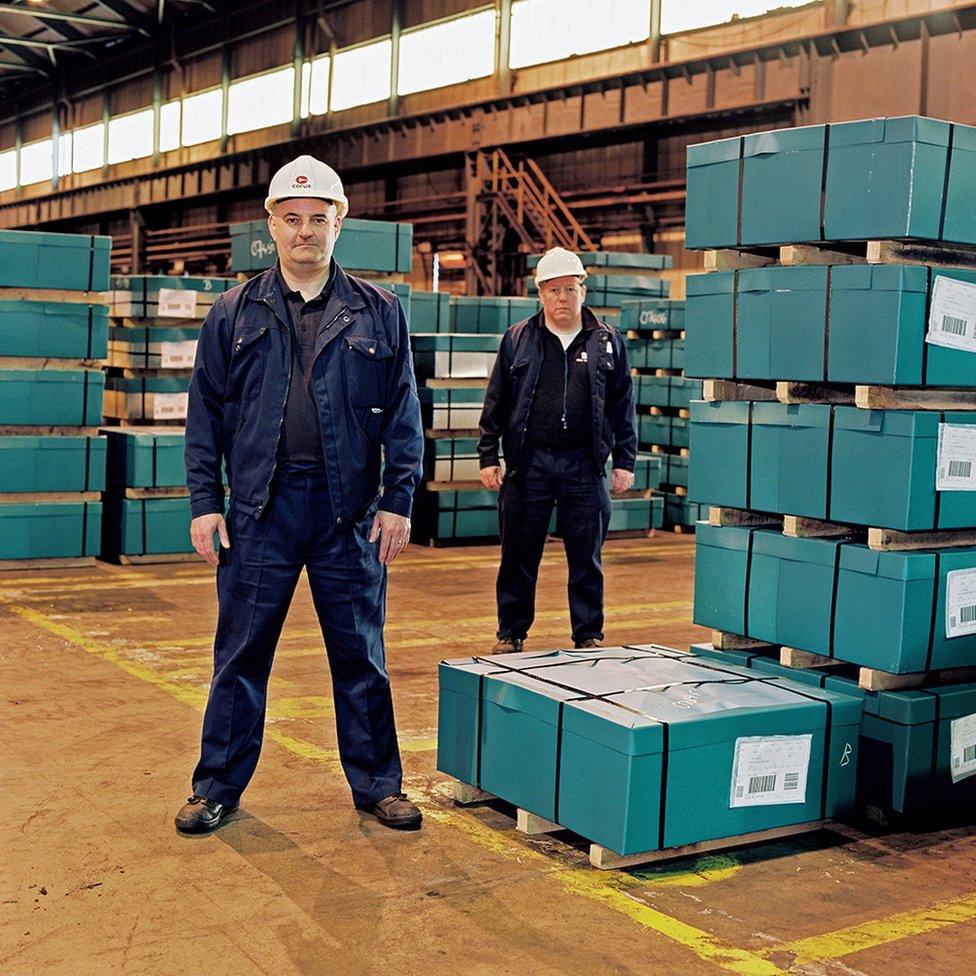
devastation
sad
end of an era
wanted to die
relieved (knew it was coming)
cheated
resigned to the fact
helpless
keen to move on
wanted to prove people wrong about the closure
cheated again and again

Colin Hazlewood
Team leader of 5-stand, 32 years at the works
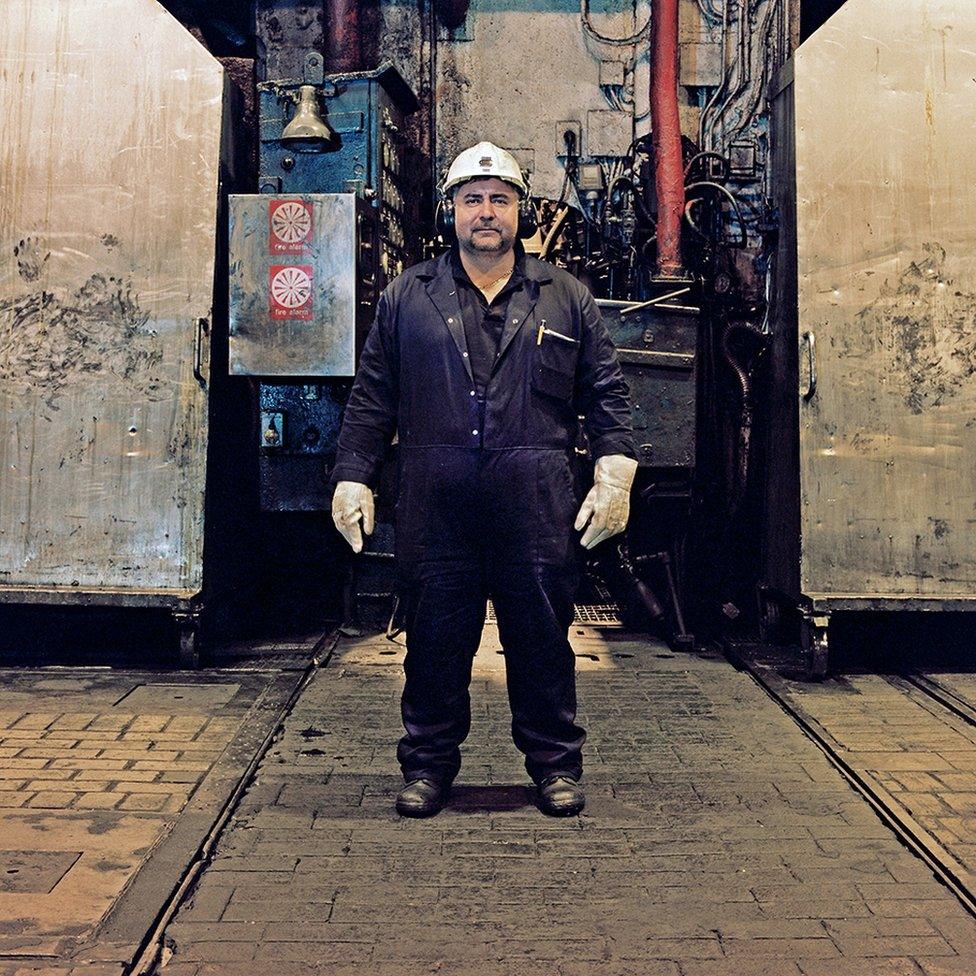
I felt angry.
I felt frustrated because we were told that we were the best performing works with the highest quality.
I believe that a mixture of politics and location led to the downfall of Ebbw Vale.

Mike Gardner (front) and Ian Lapham (back)
Team leaders of electronic tinning line at the works, 32 years and 33 years respectively
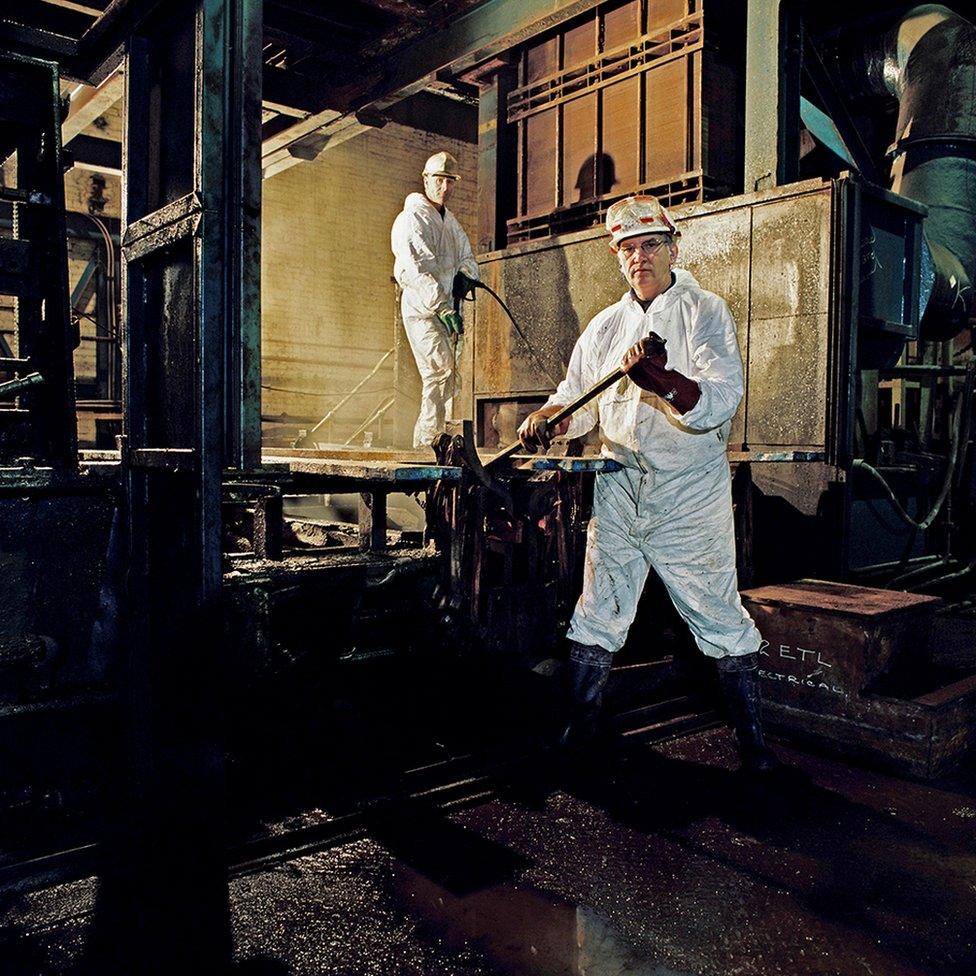
Mike Gardner: My strongest memory of the plant is comradeship.
The experience of working in that environment will be with me forever.
You met people from different areas and different ways of life.
Some were strong characters, some were comedians, some were more serious, but when you put them all together you had a brilliant place to work.
To give an example, when I worked in the coal and coking plant you relied on your workmates to wash your backs in the showers - just as it was in the coal industry.

Ian Powell
Fitter turner, 39 years at the works
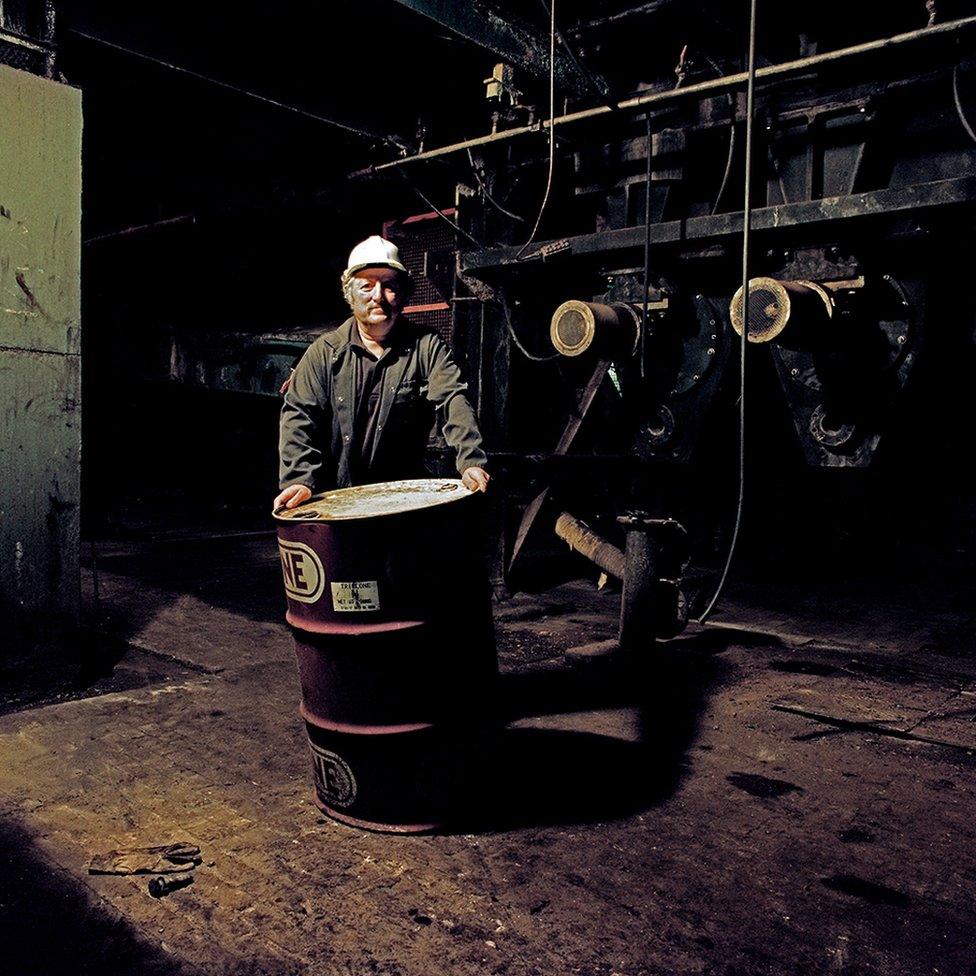
One of the proudest moments of Ebbw Vale has to be the last coil that was run through number three ETL.
It was a prime coil.
They should have made a film of the workers in the rundown to closure, to show people how a proud workforce acts in adversity.
It would have been so easy for them to say: "Why bother?" but they stayed proud of their work, and carried on regardless.

Lyndon T Crosby (left) and Steve Watkins (right)
Welder and maintenance electrician, 35 and 33 years at the works, respectively
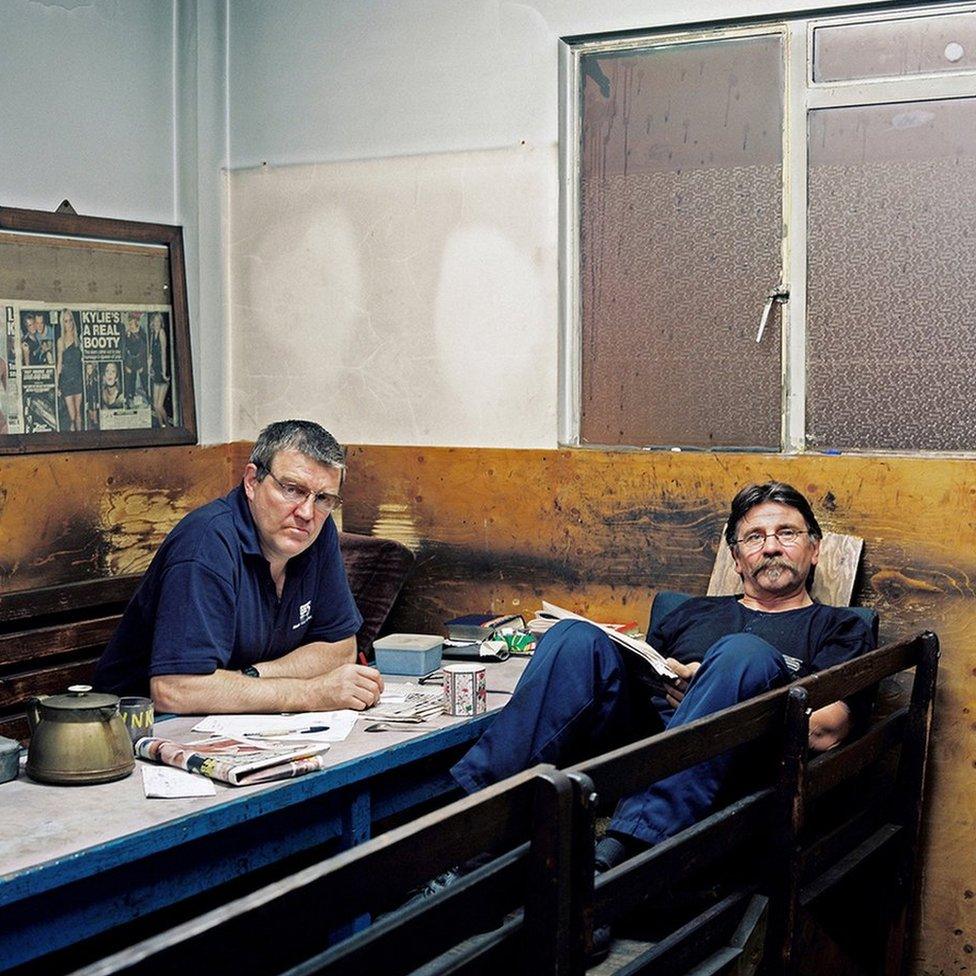
Lyndon T Crosby: I was extremely apprehensive during the time of closure, but remember feeling fortunate.
Fortunate at having left school and starting work within a week, and lucky enough to be employed for 35 years, and leaving with a considerable lump sum and a small pension.
I was also fortunate enough to gain further employment, albeit with a great sadness, in the demolition of the works.
That time was tough emotionally.
Steve Watkins: The time of closure was upsetting.
There had been rumours flying around, so it wasn't a complete surprise.
But I remember after the meeting at which it was announced, that I finished work early feeling sick and went home with a tear in my eye.

Philip Lawton
Fitter and roll grinder, 34 years at the works
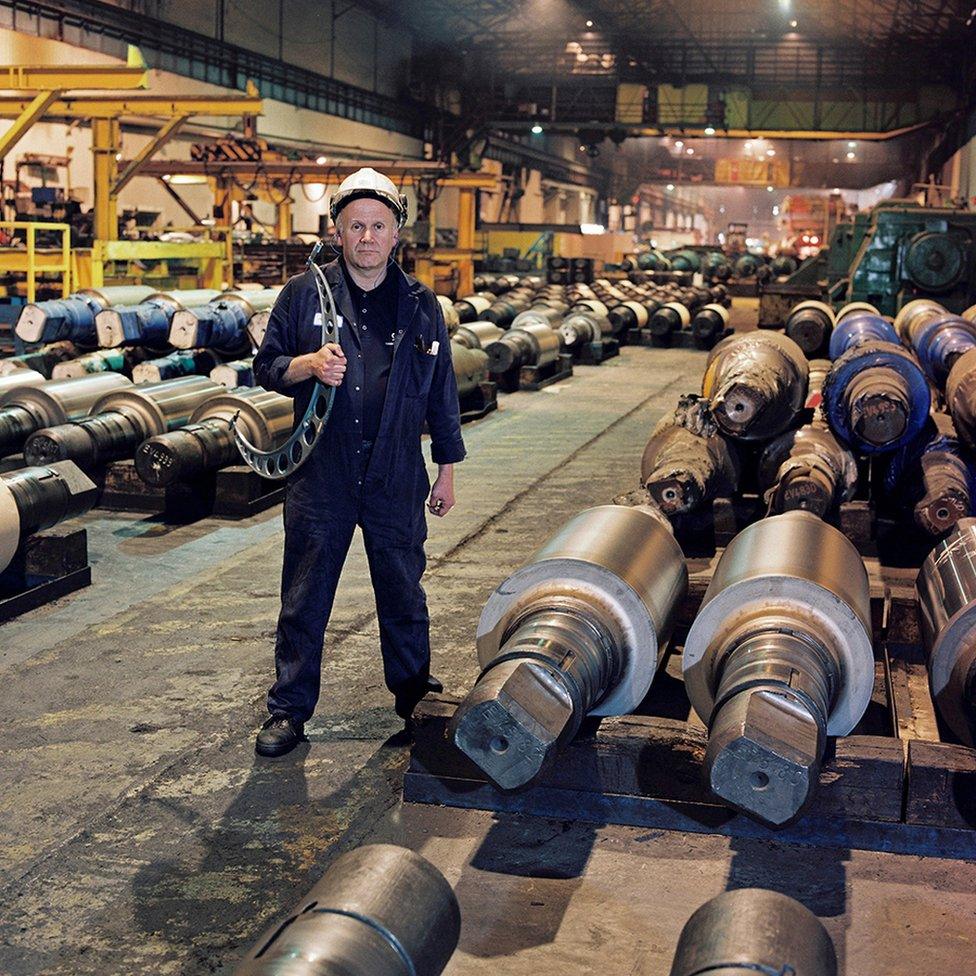
The enormous size of the plant was locked into my memory when in my first year of employment I had to walk to work through the snow.
Walking through the various mills and departments along the vast length of the works was the easiest and quickest option.
The sounds and sights I experienced on that trek left a lasting impression on someone who had only just left school.
The constant noise from the tinplate lines, the smell of the acid being used to clean the steel coils in the pickler, the sight of a large hot steel ingot as bright as the Sun, being reduced to a thin steel slab, together with the bright light emanating from the converter shop, lingers in the mind.

Vincent Keane
Team leader of temper mill, 33 years at the works
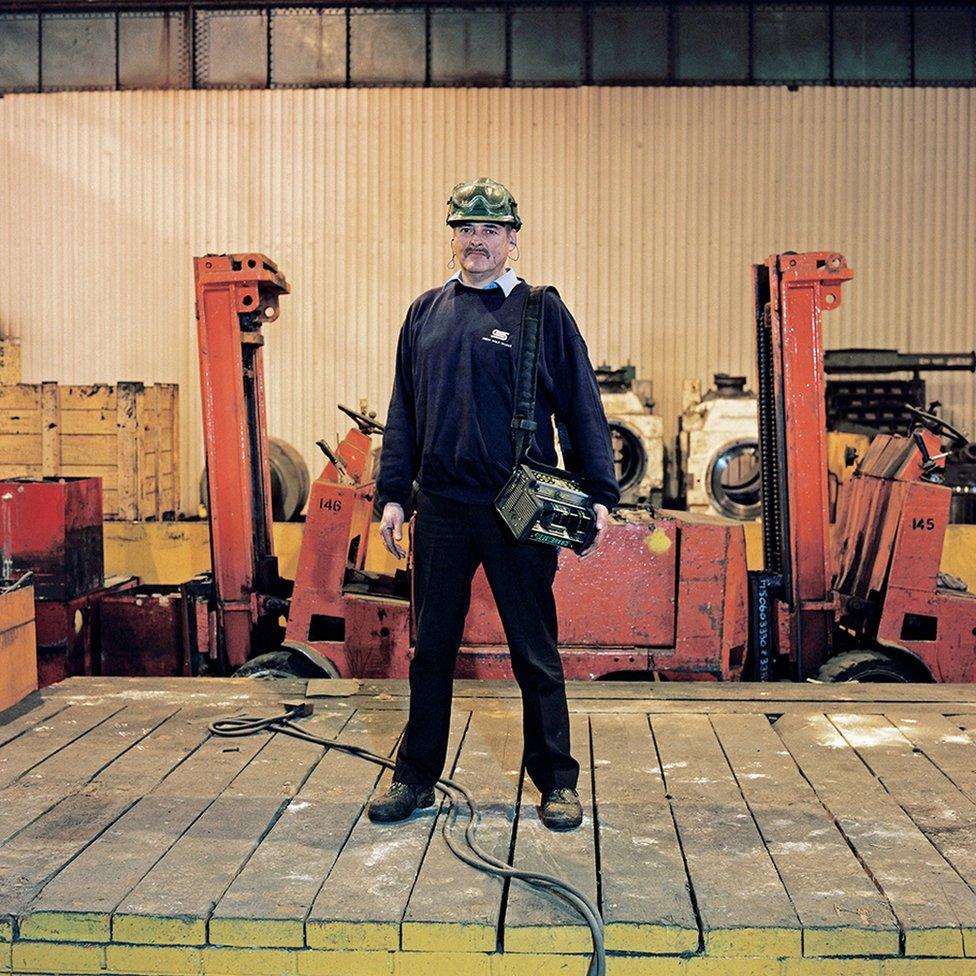
I was actually in the works when I was told of the closure.
We were told to down tools and called in to be spoken to by senior management, who broke the news.
We were all numb really.
The last day was very muted, with little conversation.
I felt terrible.
Some people were taking photos at the gates, but most people clocked in, stayed for a couple of hours and then left quietly, alone with their thoughts.

Peter O'Callaghan
Fitter and roll grinder, 15 years at the works
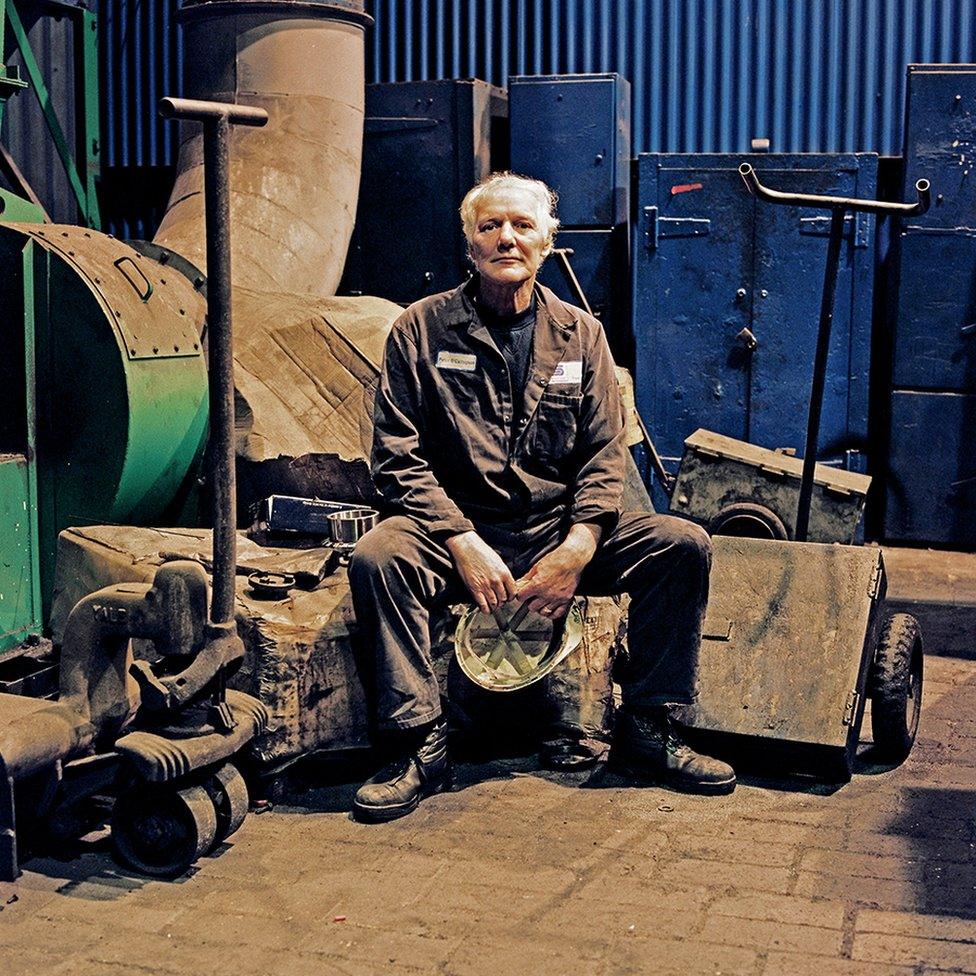
At the time of closure I was 60 and would have liked to have had five more years to take me to retirement.
But I was devastated seeing young men with families losing their jobs.
My strongest memories are of my workmates.
We all had a good relationship with each other, so to recall the atmosphere at the time is emotional.

Paul Price
Production operator and team leader, 38 years at the works
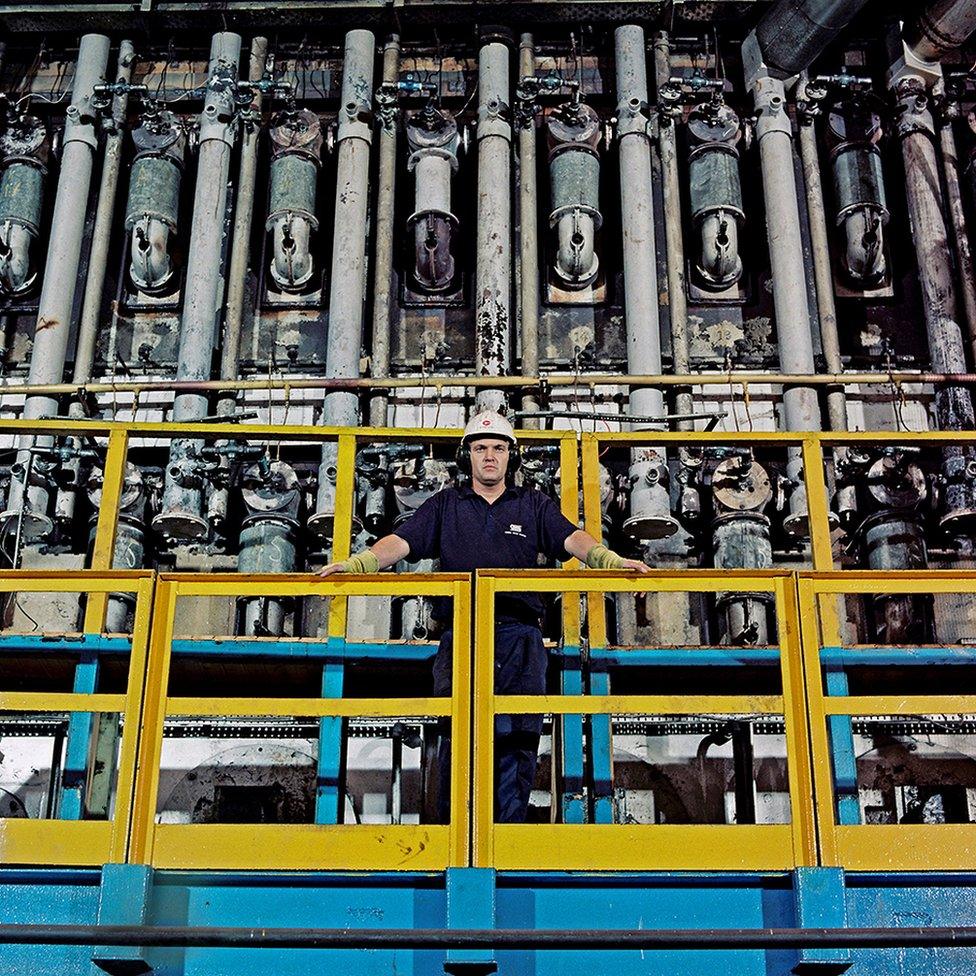
I remember I was working a nightshift on the eve of the announcement.
We were all talking amongst ourselves about the outcome.
I remember saying to the boys that I thought they would put us on Monday-Friday working, rather than shut us down.
At the end of the shift, I went home to bed.
I got up at 13:00, and my partner was watching the Welsh news, and she said:"They are shutting the plant, with 18 months grace."
I was absolutely devastated.

Mike Tarr
Projects engineer, 29 years at the works
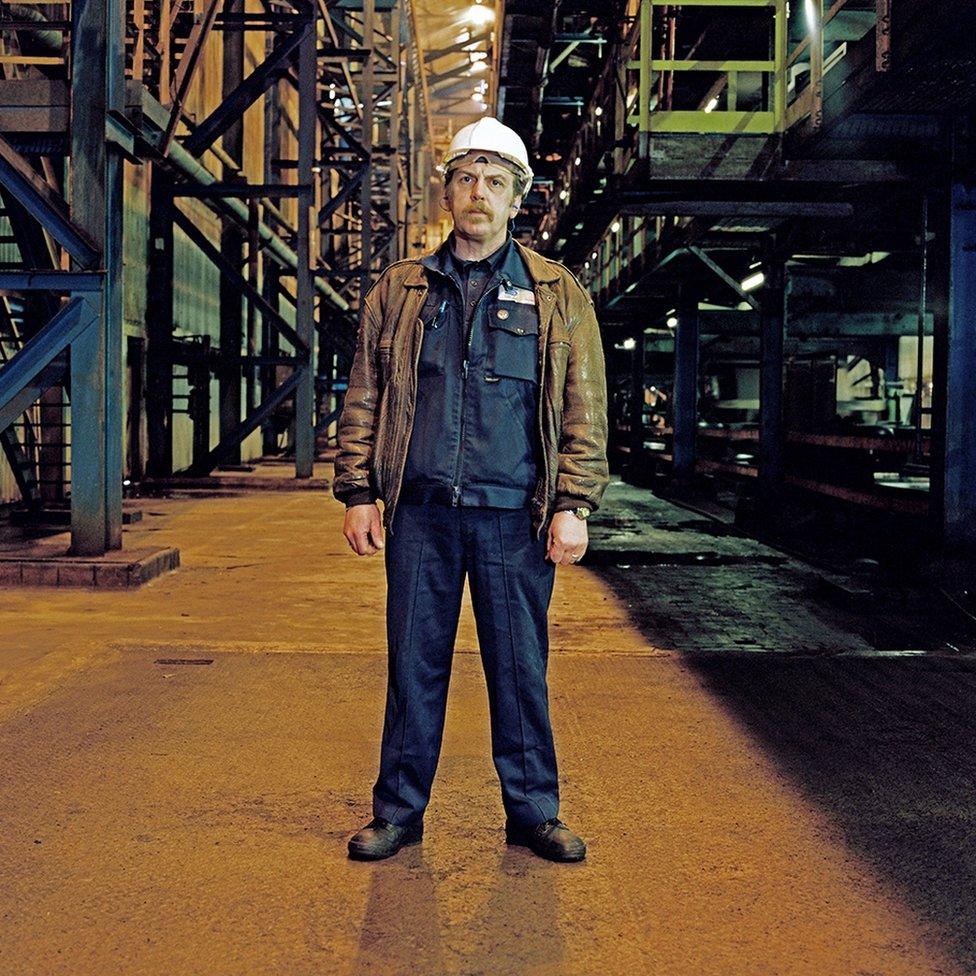
My strongest memories are all my friends and work colleagues who I worked with during my 29 years service at the plant.
It's difficult for many on the outside to understand the camaraderie that the steelworks had.
Only the coal industry could equal it.
We socialised together, our children and grandchildren played and went to school together.
Ever since the early 1800s, the works were part of the community, which our children have now lost.

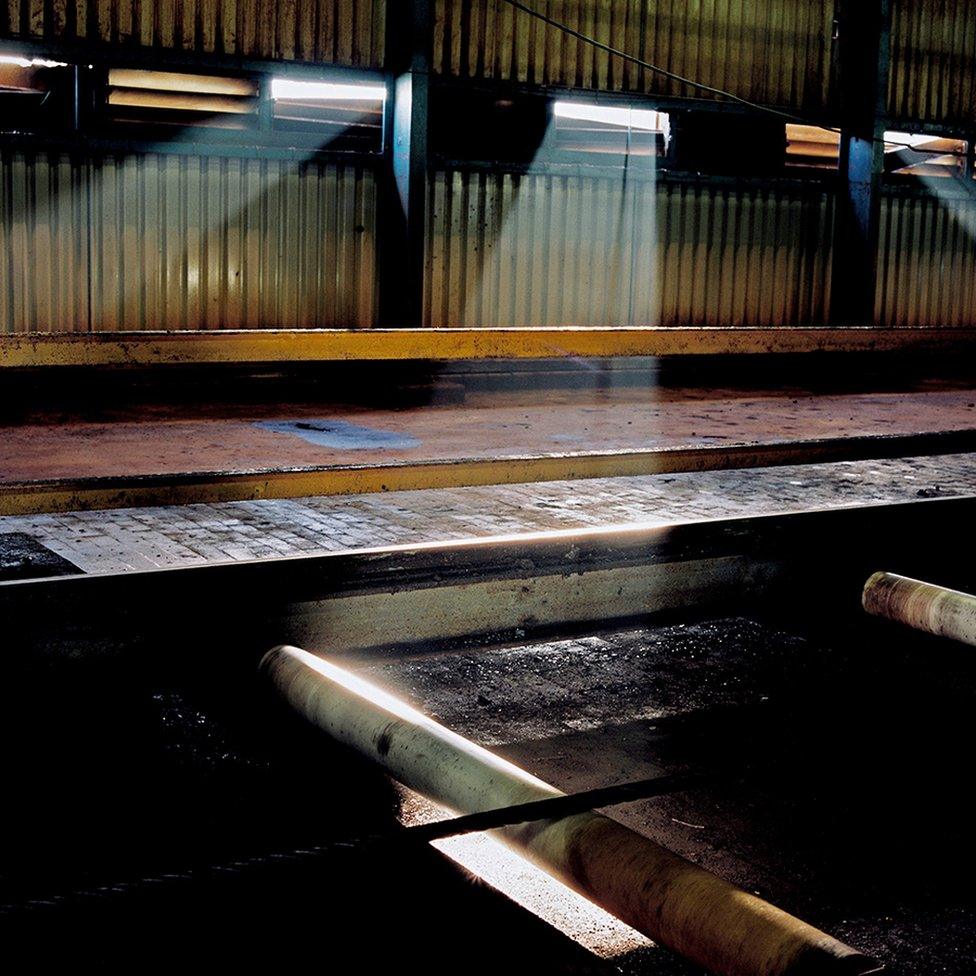
All photographs by Joseph Murphy, external